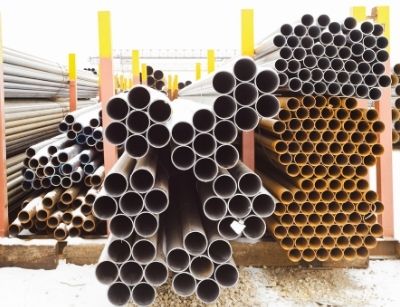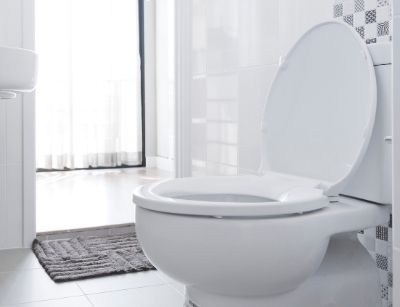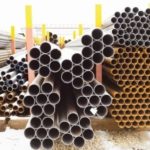
Plumbing Tips Just in Time for Earth Day
Water conservation is a major buzzword when discussing the environment, and spring is a time when the beauty of nature comes to the forefront of people’s minds. Helping to save the planet is not only the right thing to do but with a little help from a professional, people can actually make ecological choices that will be economical as well.
Choosing the Right Pipe Materials

To a layperson, a pipe is a pipe. All pipes are the same, just different sizes, right? Unfortunately, this is not the case. The material from which a pipe is made will help retain heat or can disperse it, affecting the efficiency of the water heater. Installing the proper type of pipes, particularly for hot water, can make a big difference in both heating efficiency and water usage.
All pipes have their pros and cons and can be used in different situations.
- Copper Pipes: Copper pipes have many advantages and can be attached directly to a heating system. They last for a long time and are excellent for hot water transfer, helping to insulate the heated water. They are very popular, especially for new builds, but are an expensive choice.
- Galvanized Steel: Durable and efficient for heating, galvanized pipes are a slightly less expensive option than copper. They may even last longer but tend to rust and discolor water at the end of their lives.
- PEX: This is a newer form of piping that is flexible, easy to assemble, and less expensive than the previous options. Unfortunately, though more durable in the heat than the following two options, this type of pipe cannot be connected directly to a water heater. Because of its chemical makeup, it may also contaminate the water after a time.
- PVC: This is simply a plastic pipe that has a variety of uses and is very inexpensive. It is flexible and fairly easy to install. It does not last as long as the other options and may tend to be a breeding ground for live contaminants such as mold and bacteria.
- CPVC: This is a more durable form of PVC that helps reduce contamination and is excellent for both hot and cold water. It offers flexibility not found in copper and steel and is cheaper. It does become brittle in very cold temperatures and cannot be recycled.
Toilets and Water Conservation
 Flushing toilets account for almost a fourth of the total water usage of a given household. It follows that installing a more efficient toilet would save homeowners both water and money. All of the”low-flow toilets” listed below save up to half a gallon of water with every flush.
Flushing toilets account for almost a fourth of the total water usage of a given household. It follows that installing a more efficient toilet would save homeowners both water and money. All of the”low-flow toilets” listed below save up to half a gallon of water with every flush.
- Dual Flush Toilets
- Gravity Assist Toilets
- Pressure Assist Toilets
- Vacuum Assist Toilets
Water Heaters: Efficiency Equals Money
These will go easy on the utility bill because water heaters are the second highest energy drain in the home. There are several ways to approach water heaters. Energy efficiency can come from several different innovations, including tankless heaters and options that provide on-demand hot water recycling. All of these options are beneficial not only to a person’s pocketbook but also to the whole planet, so it’s worth it to look for the Energy Star logo!
About Jim Wagner Plumbing, Inc.
Jim Wagner Plumbing has been serving the greater Chicago area for three generations. They feature up-front pricing, are on time for service, and their years of experience provide them with the skills to give expert and honest advice. Give them a call today for trusted residential plumbing services in Chicago.
Distribution Links +
- midplains.newschannelnebraska.com
- panhandle.newschannelnebraska.com
- metro.newschannelnebraska.com
- wicz.com
- wboc.com
- ktvn.com
- snntv.com
- rfdtv.com
- htv10.tv
- central.newschannelnebraska.com
- southeast.newschannelnebraska.com
- northeast.newschannelnebraska.com
- plattevalley.newschannelnebraska.com
- rivercountry.newschannelnebraska.com
- wrde.com
- wpgxfox28.com
- lifestyle.mykmlk.com
- wtnzfox43.com
- lifestyle.3wzfm.com
- lifestyle.bigtalkerradio.com
- lifestyle.rewindmymusic.com
- lifestyle.koltcountry.com
- lifestyle.967thewolf.net
- lifestyle.southernsportstoday.com
- lifestyle.thepodcastpark.com
- lifestyle.680thefan.com
- lifestyle.xtra1063.com
- lifestyle.953hlf.com
- lifestyle.rewind1019.com
- lifestyle.us983.com
- lifestyle.countrylegends1059.com
- lifestyle.967wshv.com
- lifestyle.1045thedan.com



